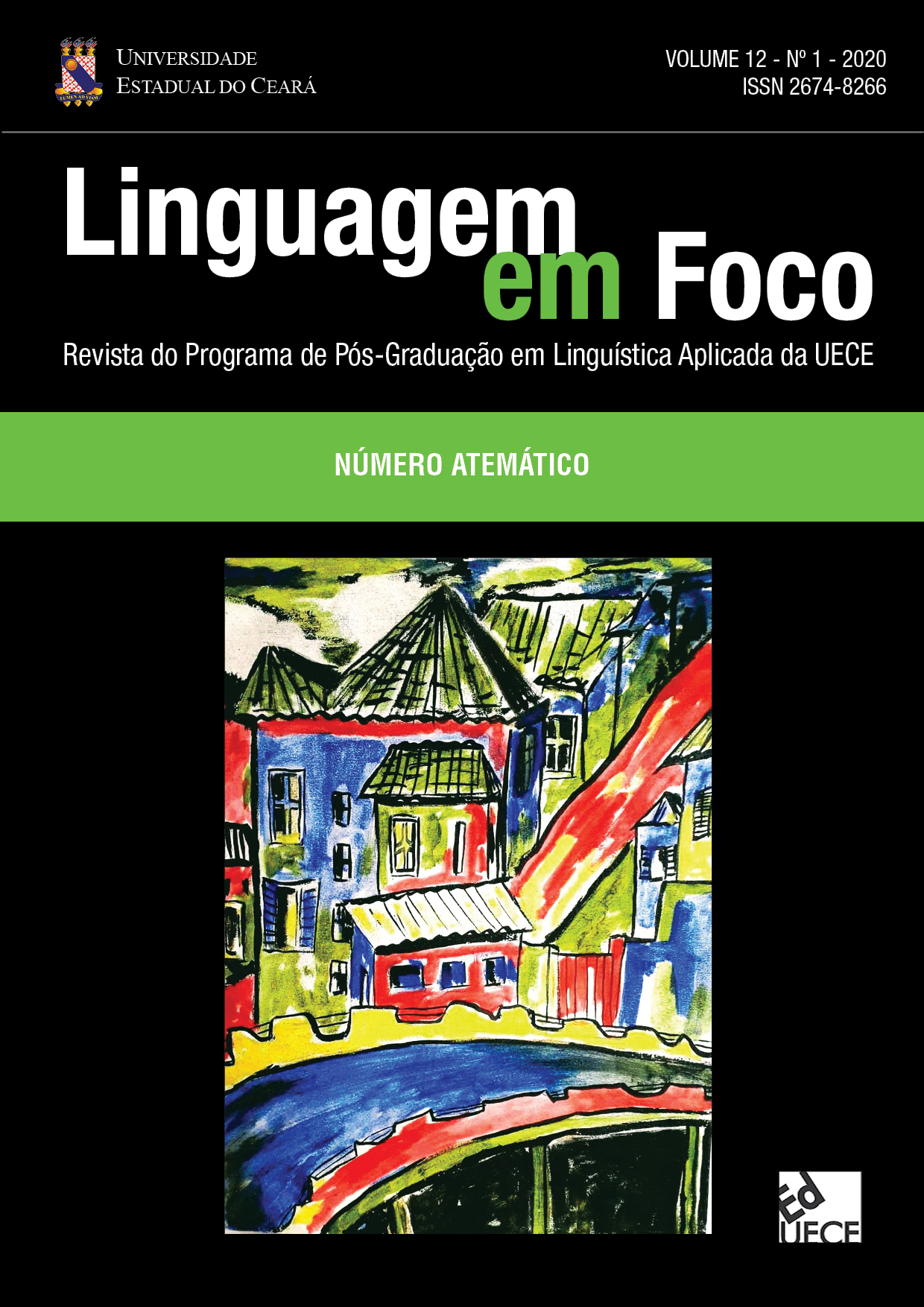La Semana Pasada Hemos Hecho Y Hoy Hicimos
The Past Perfecto Simple and Perfecto Compuesto in the Northern Variety of Peninsular Spanish
DOI:
https://doi.org/10.46230/2674-8266-12-3122Keywords:
Spanish Language, Preterity, Oral CorpusAbstract
In this article, the use of the past perfecto simple and perfecto compuesto in the northern variety of peninsular Spanish is approached. In order to do so, we take as a theoretical contribution what is predisposed in the Nueva Gramática de la Real Academia Española of the Royal Spanish Academy (2010) and in works related to the simple and compound past forms and the use of the anterior and previous time markers in this variety of peninsular Spanish, anchoring both past forms. For this, 20 interviews were selected, equally distributed among the regions of Alcalá de Henares, Madrid, Galicia and Valencia in an oral linguistic body, the Proyecto para el Estudio Sociolingüístico del Español de España y América (PRESEEA). After the analysis of the data, it was found that, although the use of the present markers with the perfecto compuesto and anteriority markers with the perfecto simple was predominant, there was a significant percentage of use of present markers anchoring the simple past tense (13%), due to an ancient trace of this past tense type, in the Spanish northern variety, relating to immediate past; and a relative percentage of anteriority markers anchoring the present perfect (6.3%), due to a subjective interpretation of the speaker with respect to the past event, relating it to the moment of speech.
Downloads
References
KEMPAS, I. Estudio sobre el uso del pretérito perfecto prehodiernal en el español peninsular y en comparación con la variedad del español argentino hablada en Santiago del Estero. 2006. 337f. Tese (Doutorado em Letras) – Programa de Pós-Graduação em Letras, Universidade de Helsinki, Finlândia. Disponível em: https://bit.ly/38x4NAv. Acesso em: 17 jan. 2020.
KEMPAS, I; SAMANIEGO, A. L. En torno a la elección de los tiempos pasados aorísticos en catalán/valenciano por hablantes bilingües. Revista Sintagma, v. 19, 2007, p. 23-38. Disponível em: https://bit.ly/37f9RcV. Acesso em: 17 jan. 2020.
LOCHTE, M. C. El Pretérito Perfecto Compuesto y su contraste con el Pretérito Perfecto Simple en las variedades del español. 2014. 105f. Dissertação (Mestrado em Linguística) – Programa de Pós-Graduação em Ensino de Espanhol e Catalão como Segunda Língua, Universidade de Girona, Espanha. Disponível em: https://bit.ly/36h4Grw. Acesso em: 17 jan. 2020.
OLIVEIRA, L. C. de. As duas formas do pretérito perfeito em espanhol: análise de corpus. 2007. 130f. Dissertação (Mestrado em Linguística) – Programa de Pós-Graduação em Linguística, Universidade Federal de Santa Catarina, Florianópolis. Disponível em: https://bit.ly/30Pb2NK. Acesso em: 17 jan. 2020.
REAL ACADEMIA ESPAÑOLA. Nueva Gramática de la Real Academia Española. Madrid: Editorial Espasa, 2010. 6741p.
SANTOS, C. F. dos. Variação e mudança lingüística dos pretéritos simples e composto, uma perspectiva sociolingüística e discursiva: amostras de Madri, Cidade do México e Buenos Aires. 2009. 259f. Dissertação (Mestrado em Letras Neolatinas) – Programa de Pós-Graduação em Letras Neolatinas, Universidade Federal do Rio de Janeiro, Rio de Janeiro. Disponível em: https://bit.ly/2NQyBAu. Acesso em: 17 jan. 2020.
SOTO GARCÍA, Á. Sobre los tiempos compuestos en el gallego actual. 2012. 27f. Monografia (Faculdade de Filologia) – Departamento de Filologia Clássica, Universidade de Pontevedra, Espanha. Disponível em: https://bit.ly/38l13Ci. Acesso em: 17 jan. 2020.
Downloads
Published
How to Cite
Issue
Section
License
Copyright (c) 2020 André Silva Oliveira

This work is licensed under a Creative Commons Attribution 4.0 International License.
Authors who publish in Linguagem em Foco Scientific Journal agree to the following terms:
- Authors retain the copyright and grant the journal the right of first publication. The articles are simultaneously licensed under the Creative Commons Attribution License which allows sharing the work with an acknowledgement of its authorship and initial publication in this journal.
- The concepts issued in signed articles are the absolute and exclusive responsibility of their authors. Therefore, we request a Statement of Copyright, which must be submitted with the manuscript as a Supplementary Document.
- Authors are authorized to make the version of the text published in Linguagem em Foco Scientific Journal available in institutional repositories or other academic work distribution platforms (ex. ResearchGate, Academia.edu).





























